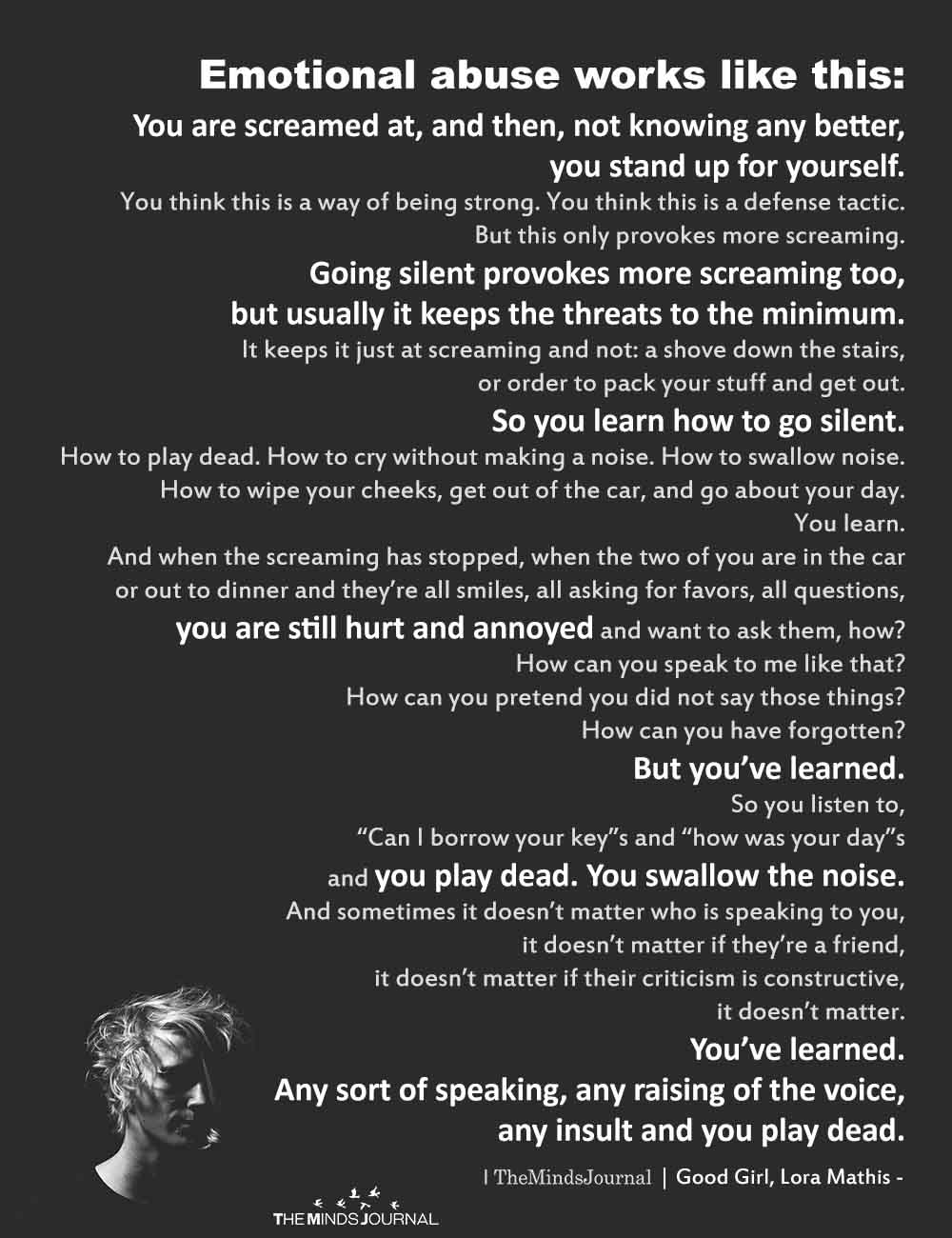Intuition is a powerful thing to have, but unfortunately, sometimes anxiety can hijack it, and affect your ability to be intuitive, especially if you have gone through emotional and mental abuse.
We all have one major gift that can help us navigate this crazy and confusing life. That gift is intuition. But if you’ve been in an emotionally abusive relationship, it’s possible that the lines between intuition and anxiety have been blurred.
How do you really know if that little voice that’s telling you something isn’t right is your intuition trying to keep you safe or if it’s anxiety keeping you stuck?
I think most of us have had that “gut feeling” and simply have been right. We can recognize it as intuition. And when your intuition serves you well, it’s easy to follow.
But something weird happens when you’ve been in an emotionally abusive relationship. And it can feel as if your intuition has let you down. In truth, intuition does have an enemy. And that enemy is anxiety.
Unfortunately, anxiety is one of the common long-term effects that many people experience after emotional abuse.
Related: The Subtlety Of Emotional Abuse
You may think of anxiety as a medical problem. There’s a lot of science backing anxiety and to a degree, you can measure the amount of anxiety one is experiencing. Intuition, on the other hand, seems to be a more abstract concept. But that’s beginning to change.
Researchers are starting to study intuition, and a study published in the journal Clinical Psychological Science actually studied participants with anxiety and came to the conclusion that their anxiety impaired intuitive decision-making. Makes sense doesn’t it?
So if you’re struggling to trust your gut after an emotionally abusive relationship, anxiety may be the real problem.
If scientists can distinguish anxiety from intuition, we should be able to do the same for ourselves.

Here Are Some Tips For Determining Whether You’re Following Anxiety Or Intuition.
1. You’re fearful.
If you’re making decisions from a place of fear, you are more likely dealing with anxiety. That’s not to say that intuition will leave you high and dry in an intense situation, but you may have to work harder to tap into that inner wisdom.
Whenever you watch a movie where the main character has to make a quick decision, you’ll see them pause and take a few deep breaths first. And this is an example where the movies get it right.
Anxiety will keep replaying the fear. And you have to consciously slow down, press pause on the anxious thoughts, and try to tap into your intuition.
If you have more time than they do in those movie moments, you may want to try meditation to quiet anxiety and recognize the intuition comes through.
2. You’re experiencing physical symptoms.
When we talk about intuition, we often talk about gut feeling. And this can be confusing because anxiety can also cause some physical feelings in your gut. But intuition is more of a knowing and less of a literal feeling, meaning that you’re much less likely to experience physical symptoms with intuition than you are with anxiety.
Related: How Mandalas Can Help Reduce Stress and Anxiety
3. The feeling is intense and overwhelming.
Again, this can be a little tricky because intuition can be intense too, but it’s more often very subtle and subdued. But if you’re hit with a sudden panic, you’re almost always dealing with anxiety.
4. You can explain it.
We can always explain anxiety, but we can never explain intuition. So if you’re in a situation where you know exactly why you’re feeling the way you are, it’s not intuition.
Intuition is the ability to make the right decision without deliberate analytical thought. So if you can rationalize your decision, it’s not intuition. This isn’t to say you’re going to make a bad decision, but it’s just not based on intuition.
5. Your mind is in the past or future.
Anxiety is almost never rooted in the present. When you’re feeling especially anxious, you’re thinking about the past or future. Intuition is in the present moment. And this is why it’s so important to ground yourself to quiet anxiety.
Related: 8 Tips To Strengthen The Voice Of Your Intuition
When anxiety is present, it’s impossible to access your intuition.
Written By Common Ego Originally Appeared On Common Ego










Leave a Reply